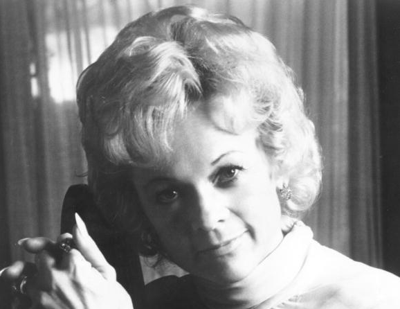Jean Shepard, who died Sunday in Nashville, was a masterful country singer who perfected a plain, hard style that dramatized her tales of loss, betrayal and ecstasy without calling attention to her technique. Shepard stayed in control, but her voice gave body to songs that often explored the limits of what women could endure, and in this she was a feminist working in a time and place that favored male performers. Famously blunt on the subject of the country-music business and its pop ambitions, Shepard was a purist in an art form that was becoming increasingly impure.
She was born Ollie Imogene Shepard on Nov. 21, 1933 in Pauls Valley, Okla., into a sharecropping family who moved when she was 10 to Visalia, Calif., a town 80 miles north of Bakersfield. By the time she was 15 she was singing and playing bass in a band called The Melody Ranch Girls, who performed at church socials and dance halls in the area. Shepard also sang on a local radio station, and she got her break when she shared the stage with country star Hank Thompson, who was appearing near Visalia with his band, The Brazos Valley Boys.
Impressed by her ability, Thompson promised Shepard a contract with his label, Capitol Records, but it took several months for Capitol producer and A&R man Ken Nelson to sign her. As she would later tell interviewers, Capitol had difficulty with the idea of a solo female country singer. Recorded at Capitol’s Hollywood studio in September 1952 with Nelson and a band that included steel guitarist Speedy West and guitarists Jimmy Bryant and Billy Strange, her first single, “Crying Steel Guitar Waltz,” didn’t make much of an impression.
Shepard hit the following year with “A Dear John Letter,” which featured her vocal and a recitation by country singer Ferlin Husky. The tale of a soldier who receives bad news from his sweetheart, the record ended with Husky reciting the contents of the letter over the backdrop of Shepard’s ghostly vocal. Not yet 20 when the record made No. 1 on the country chart, Shepard became the youngest country singer up to that time to own the top spot.
“A Dear John Letter” sold a million copies, and Shepard began performing in 1955 on the Ozark Jubilee television show. In November of that year she joined The Grand Ole Opry, where she would appear for 60 years, the longest run of any female performer to date. She recorded a 1955 hit version of Red Hayes and Jack Rhodes’ “A Satisfied Mind,” on which she held out the last line of each syllable as it were an incantation. Shepard also cut 1956‘s Songs of a Love Affair, an early example of the concept album.
After the success of “A Satisfied Mind,” Shepard enjoyed a few more hits in the late '50s — by this time she was recording in Nashville at Bradley’s Film & Recording Studio with Music City session men such as bassist Bob Moore and drummer Buddy Harman — and then dropped off the charts. She came back in 1964 with Betty Amos and James Willis’ “Second Fiddle (To an Old Guitar),” a funny account of female empowerment, and continued to chart hits until the late '70s.
It could be that Shepard disappeared from the charts in the early '60s because her singing was too raw, or old-fashioned, to fit into the countrypolitan sound of the era. Her lack of artifice presaged the approach of Loretta Lynn and Connie Smith, but Shepard, like her fellow female country pioneer Kitty Wells, made unaffected singing sound like timeless popular music.
Listen to Shepard’s 1975 hit single “Another Neon Night,” which may be about a prostitute but is certainly a song that takes loss of identity as its theme. “There’s someone lying next to me / And I don’t even know his name,” she sings. With its strange, swooping steel guitar, it’s a foray into psychodrama that stands as one of the most powerful recordings Shepard ever made.
Shepard married country singer Hawkshaw Hawkins in Nov. 1960. Hawkins died in the 1963 plane crash that also took the lives of Patsy Cline, Cowboy Copas and Randy Hughes. Her second marriage ended in divorce, and in 1968 she married bluegrass singer Benny Birchfield. Although her recording career ended in the '90s, she continued to perform on the Opry, and marked her 60 years on the show last November. Inducted into The Country Music Hall of Fame in 2011, she published her memoir, Down Through the Years, in 2014.
A fierce exponent of traditional country, Shepard distrusted country’s tendency to assimilate pop elements. Talking to television host and country singer Archie Campbell in 1983, she said, “I’ve had disc jockeys and a lot of people tell me, well, there should be no difference in music; all music should be the same. Well, I don’t agree with that. Now. you might drive a Ford, but I might want to drive a Chevy.”
Shepard is survived by her husband, Benny Birchfield, three sons, and several grandchildren and great-grandchildren. Funeral arrangements are unknown at this time.





